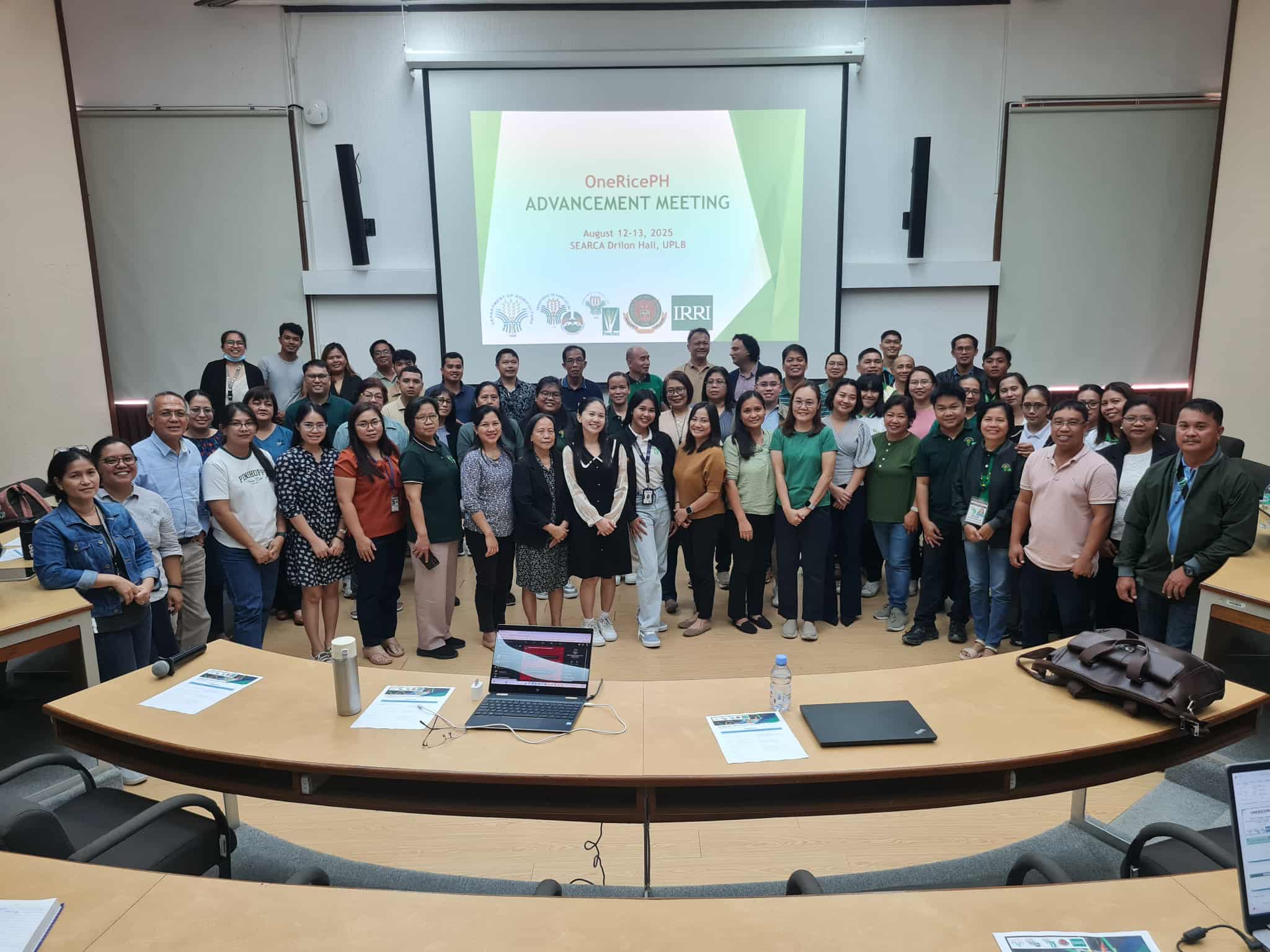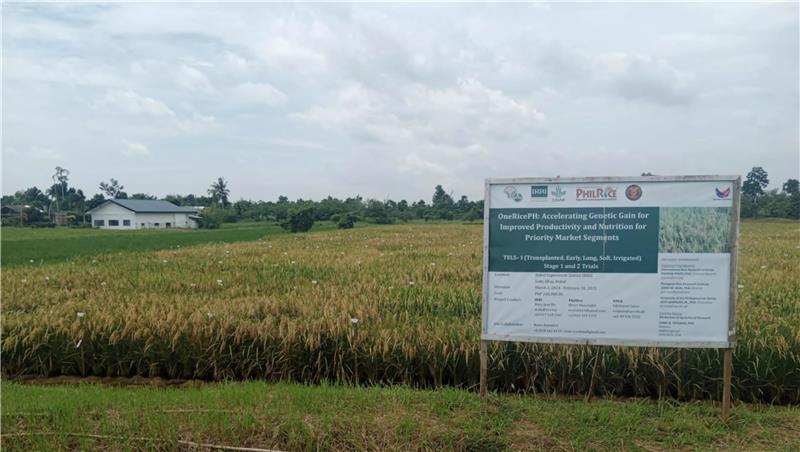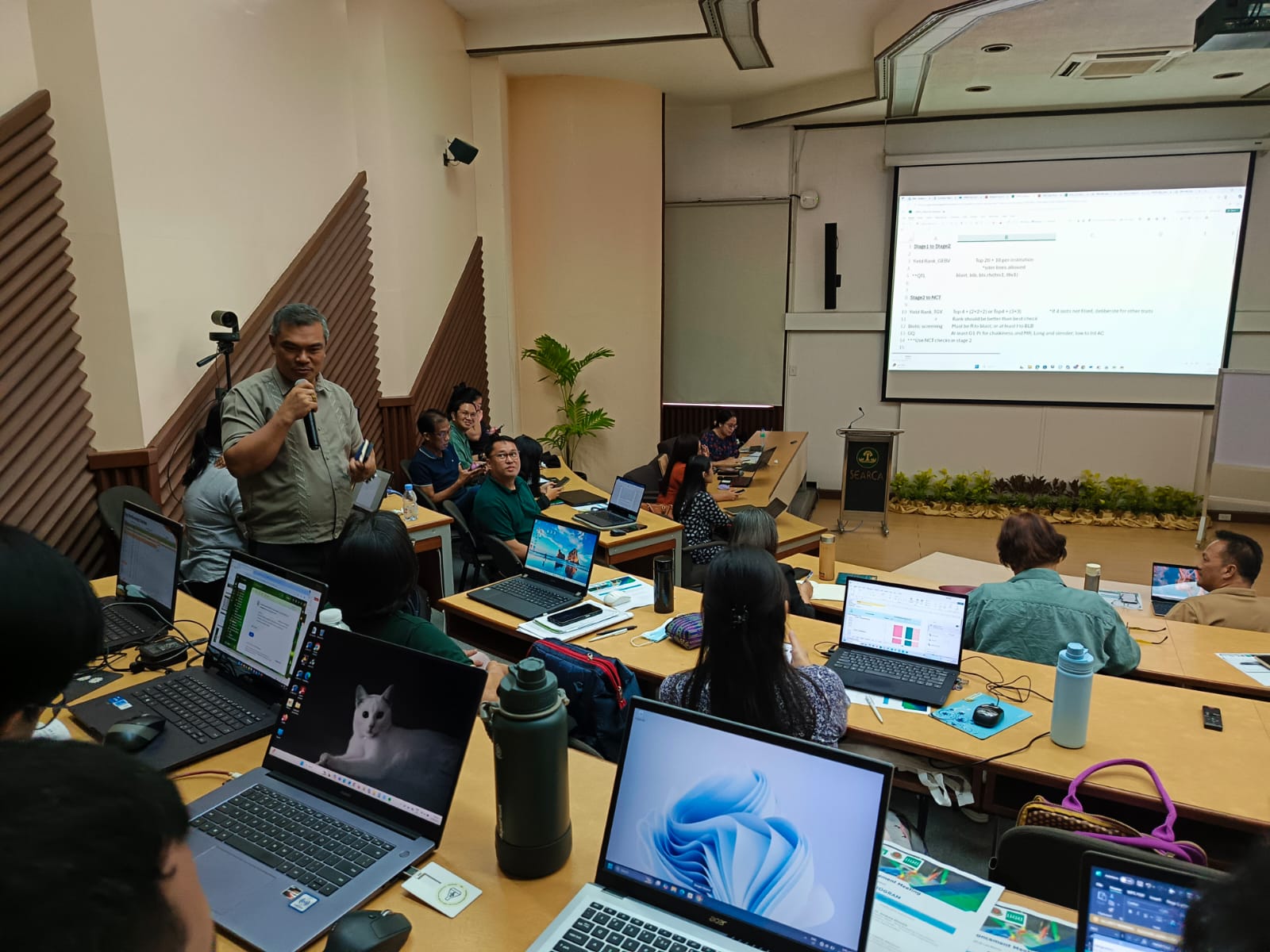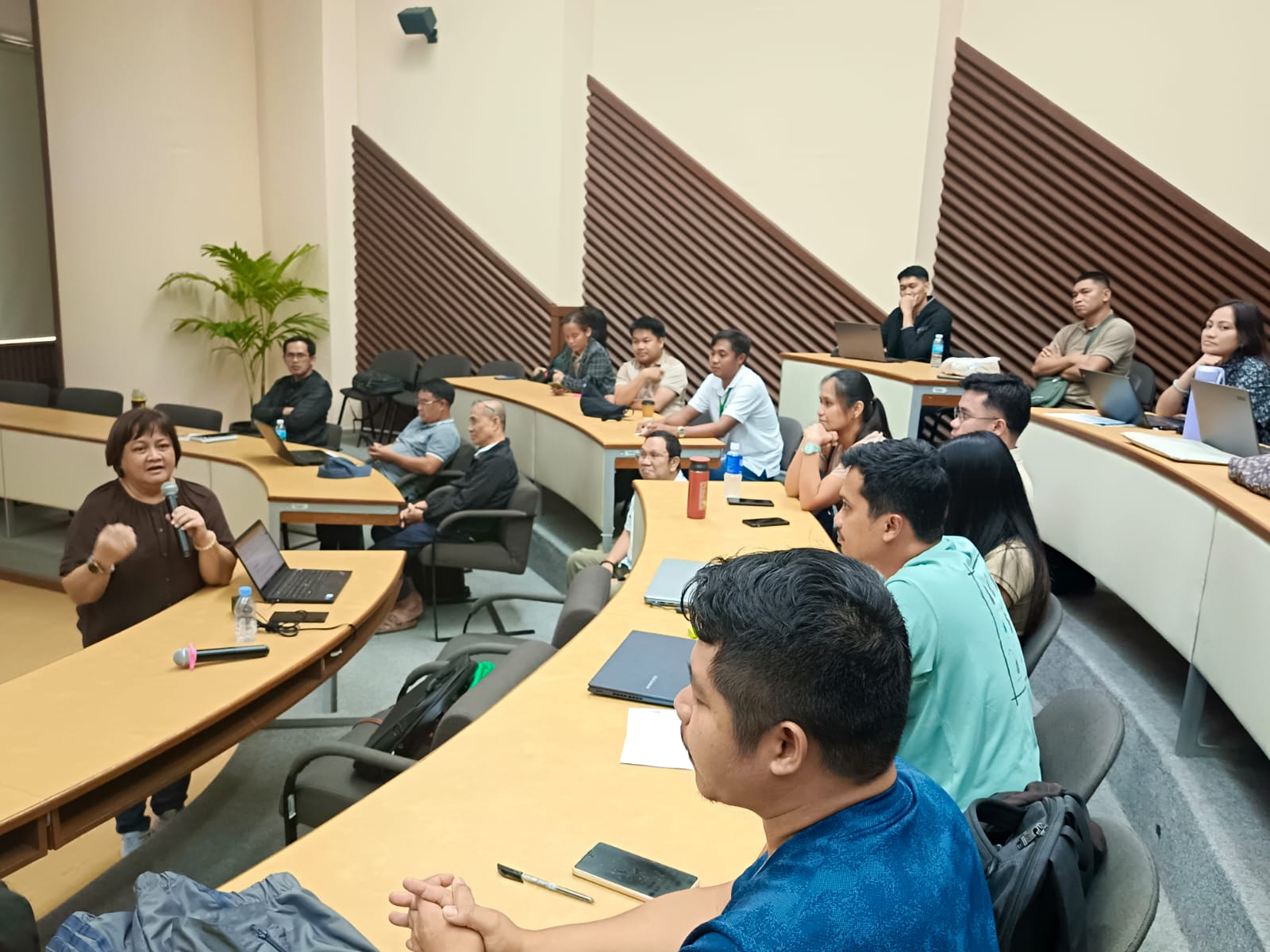OneRicePH: 25 new rice lines moving closer to Filipino farmers’ fields

LOS BAÑOS, Philippines (13 August 2025) — Twenty-five promising rice lines have been shortlisted for the National Cooperative Tests (NCT), a major step toward the national roll-out of high-performing varieties that offer Filipino farmers higher yields, stronger resistance to pests and diseases, and grain quality that meets consumer preferences.
Of the 25 lines, eight came from the International Rice Research Institute (IRRI), three from the Department of Agriculture–Philippine Rice Research Institute (DA-PhilRice), and fourteen from the University of the Philippines Los Baños (UPLB). Only rice lines that surpassed the best check varieties in yield, disease resistance, and grain quality advance to the NCT, where they undergo further evaluation before potential release as new varieties for farmers.
IRRI, DA-PhilRice, and UPLB announced the milestone during the 3rd Advancement Meeting of the OneRicePH Project at SEARCA Headquarters.
 Matured rice lines from IRRI field trials under the OneRicePH Project
Matured rice lines from IRRI field trials under the OneRicePH ProjectThe advancement process moves promising entries from Stage 1 to Stage 2, where each institute selects its highest-yielding lines, including those carrying resistance genes against major diseases such as blast, bacterial blight, sheath blight, and tungro virus.
From Stage 2, only the best-performing lines are nominated to the NCT. To qualify, these must demonstrate high yields, resistance to blast and at least intermediate resistance to bacterial blight, alongside grain quality traits such as good milling recovery, low chalkiness, long grain length, and suitable amylose content, all meeting the requirements of identified priority Philippine market segments.
Dr. Sankalp Bhosale, Interim Research Director of IRRI’s Rice Breeding Innovation, emphasized the urgency of advancing these lines, noting that the Philippines remains one of Asia’s most climate-vulnerable countries.
“We must do our best to ensure that our joint mission of strengthening national rice production and stability under climate change is realized. This project has already laid the groundwork by identifying priority market segments, and we have aligned genetics to these segments to support self-sufficiency and resilience,” he said.
 Dr. Junel Soriano highlights IRRI’s commitment to ensuring that improved rice varieties from the OneRicePH Project reach the ground
Dr. Junel Soriano highlights IRRI’s commitment to ensuring that improved rice varieties from the OneRicePH Project reach the groundDr. Junel Soriano, IRRI’s Deputy Director General - Philippines Representative, echoed this in his message. “Each year, it is important not only to measure progress but also to deploy improved varieties on the ground, where they can make a tangible impact. IRRI remains fully supportive of the OneRicePH team, and we continue to help address all concerns as we move forward.”
Department of Agriculture – Bureau of Agricultural Research (DA-BAR) representative Kayecelyn Ollero likewise expressed optimism on the project’s progress. “We are excited by the outputs of this project and confident that they can reach farmer beneficiaries. We congratulate the agencies for their contributions to strengthening rice production in our country.”
A Core Breeding Panel, composed of the top entries from Stage 2, is also being established and will be maintained by DA-PhilRice under OneRicePH. This panel will serve as a shared pool of elite materials for DA-PhilRice and partner breeding institutions, supporting breeding programs and accelerating the development of improved varieties.
 Closing the program, Dr. Mary Jean Du urges regional partners to sustain OneRicePH’s momentum
Closing the program, Dr. Mary Jean Du urges regional partners to sustain OneRicePH’s momentumLooking ahead, Dr. Mary Jean Du, IRRI’s Regional Breeding Lead for Southeast Asia, called on regional partners to sustain the project’s momentum.
“Starting in 2026, funding will flow directly to the regions. With established protocols, you already know which traits to prioritize, and which varieties best suit your environment,” she said.
Following this advancement meeting, the team will conduct a series of cluster workshops: in Luzon at the DA-PhilRice Central Experiment Station, in Visayas at Anda, Bohol, and in Mindanao at Cagayan de Oro City. These workshops aim to strengthen the capacities of OneRicePH regional focal persons and partner institutions in finalizing the 2026 regional work plans and proposals under Modules 2 (Modernizing the Unified National Rice Breeding Strategy) and Module 5 (Increasing Variety Turnover in Farmers’ Fields), ensuring alignment with national priorities and long-term sustainability.
Funded by DA-BAR, OneRicePH is a joint initiative of IRRI and the Philippine Department of Agriculture that streamlines rice breeding strategies and variety dissemination, aligning research, development, and extension with the Philippine Rice Industry Roadmap and the National Rice Program.